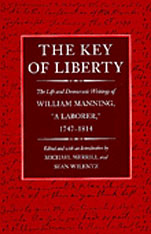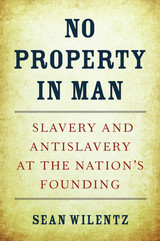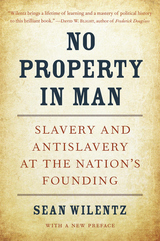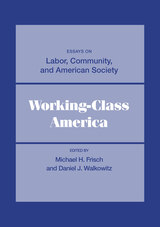
The recovery of the ideas and experiences of William Manning is a major event in the history of the American Revolutionary era. A farmer, foot soldier, and political philosopher, Manning was a powerful democratic voice of the common American in a turbulent age. The public crises of the infant republic—beginning with the Battle of Concord—shaped his thinking, and his writings reveal a sinewy mind grappling with some of the weightiest issues of the nation’s founding. His most notable contribution was the first known plan for a national political association of laboring men. That plan, and Manning’s broader conclusions, open up a new vista on the popular origins of American democracy and the invention of American politics.
Until now, only a few specialists have referred to any of Manning’s writings—though always with some wonderment at his sophistication—and his place as a pioneering and exemplary American democrat has been largely unacknowledged. In this new and complete presentation of his works, the often arid debates over “republicanism” and “liberalism” in early America come to life in vivid human detail. The early growth of democratic impulses among quite ordinary people—impulses that defy orthodox categories, yet come closer to describing the ferment that led to the repeated political conflicts of the late eighteenth century—is here visible and felt. The Key of Liberty allows us a fuller understanding of the popular responses to the major political battles of the early republic, from Shays’ Rebellion through the election of Thomas Jefferson. It offers, better than any book yet published, a grassroots view of the rise of democratic opposition in the new nation. It sheds considerable light on the popular culture—literary, religious, and profane—of the epoch, with more exactness than previous histories, presenting a new interpretation of early American democracy that is bound to be controversial and much discussed.
The editors have written a lengthy and detailed introduction placing Manning and his writings in broad context. They have also modernized the text for easy use and have included full annotation, making this volume an authoritative contribution to the American Revolution and its aftermath.

A radical reconstruction of the founders’ debate over slavery and the Constitution.
Americans revere the Constitution even as they argue fiercely over its original toleration of slavery. Some historians have charged that slaveholders actually enshrined human bondage at the nation’s founding. The acclaimed political historian Sean Wilentz shares the dismay but sees the Constitution and slavery differently. Although the proslavery side won important concessions, he asserts, antislavery impulses also influenced the framers’ work. Far from covering up a crime against humanity, the Constitution restricted slavery’s legitimacy under the new national government. In time, that limitation would open the way for the creation of an antislavery politics that led to Southern secession, the Civil War, and Emancipation.
Wilentz’s controversial and timely reconsideration upends orthodox views of the Constitution. He describes the document as a tortured paradox that abided slavery without legitimizing it. This paradox lay behind the great political battles that fractured the nation over the next seventy years. As Southern Fire-eaters invented a proslavery version of the Constitution, antislavery advocates, including Abraham Lincoln and Frederick Douglass, proclaimed antislavery versions based on the framers’ refusal to validate what they called “property in man.”
No Property in Man invites fresh debate about the political and legal struggles over slavery that began during the Revolution and concluded with the Confederacy’s defeat. It drives straight to the heart of the most contentious and enduring issue in all of American history.

“Wilentz brings a lifetime of learning and a mastery of political history to this brilliant book.”
—David W. Blight, author of Frederick Douglass
A New York Times Book Review Editors’ Choice
A Foreign Affairs Best Book of the Year
Americans revere the Constitution even as they argue fiercely over its original toleration of slavery. In this essential reconsideration of the creation and legacy of our nation’s founding document, Sean Wilentz reveals the tortured compromises that led the Founders to abide slavery without legitimizing it, a deliberate ambiguity that fractured the nation seventy years later. Contesting the Southern proslavery version of the Constitution, Abraham Lincoln and Frederick Douglass pointed to the framers’ refusal to validate what they called “property in man.” No Property in Man has opened a fresh debate about the political and legal struggles over slavery that began during the Revolution and concluded with the Civil War. It drives straight to the heart of the single most contentious issue in all of American history.
“Revealing and passionately argued…[Wilentz] insists that because the framers did not sanction slavery as a matter of principle, the antislavery legacy of the Constitution has been…‘misconstrued’ for over 200 years.”
—Khalil Gibran Muhammad, New York Times
“Wilentz’s careful and insightful analysis helps us understand how Americans who hated slavery, such as Abraham Lincoln and Frederick Douglass, could come to see the Constitution as an ally in their struggle.”
—Eric Foner

READERS
Browse our collection.
PUBLISHERS
See BiblioVault's publisher services.
STUDENT SERVICES
Files for college accessibility offices.
UChicago Accessibility Resources
home | accessibility | search | about | contact us
BiblioVault ® 2001 - 2024
The University of Chicago Press









